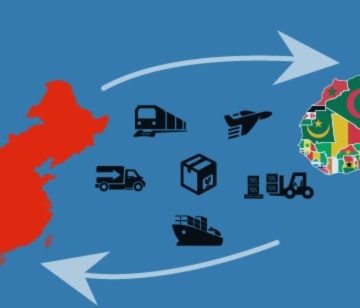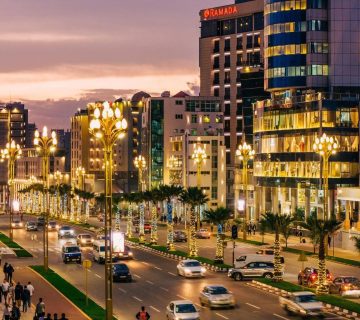The Central African Republic (CAR) is endowed with resources like diamond, gold, and uranium among others but has a dismal Gross Domestic Product (GDP) of USD 2.52 billion. The poor economic performance is partly attributed to endemic corruption mainly by the political elite and government officials. According to Transparency International’s Corruption Perception Index, CAR was ranked 154th out of 189 countries in 2021, a decline from the previous year’s 146th. Corruption Perceptions Index, notwithstanding, there have been efforts in the fight against corruption such as increasing transparency in resource ownership and allocation. For the economy to improve, CAR needs to adopt a far better anti-corruption policy alongside a strengthened judiciary.
Weak Anti-Corruption Policies
CAR has a weak constitutional framework for fighting corruption. The Constitution has two main anti-corruption provisions. These are the Responsible Governance (Article 146) and Financial Disclosure Article. The Responsible Governance article provides for the transparent and equitable distribution of resources while the latter requires all civil servants to publicly declare their wealth for scrutiny by the constitutional court. In 2016, President Faustin-Archange Touadera appointed members of the High Authority for Good Governance in a bid to help bring equity and transparency in resource allocation. Although the commission was formed, a weak judiciary has led to the disregard of some corruption cases hence preventing it from being efficient. With the two mentioned anti-corruption articles in the Constitution, CAR is expected to effectively curb corruption.
When CAR is compared to Rwanda, which is more populated and with fewer resources, a great difference is noticed. According to World Bank, Rwanda had a GDP of USD 11.07 billion in 2021. Transparency International ranked Rwanda 52nd in the same index, indicating that corruption is still prevalent in Rwanda. The government has however made a remarkable step in reducing the funds it loses to corruption mainly through the adoption of a National Anti-corruption Policy. The policy is set within a framework of zero tolerance for corruption and its main framework includes law enforcement and oversight institutions. The policy recommends a cross-cutting set of actions to be undertaken in collaboration with the private sector, civil society and the public in strengthening the fight against corruption. The fight against corruption has mainly targeted government officials so as to signal a warning to the citizens, with a notable example being the arrest of several police and army officers, ministries’ permanent secretaries, two directors general in the Ministry of Finance and Economic Planning and 12 directors of prisons in 2017.
The Rwandan Judiciary is hailed for its effectiveness with a major reason being the existence of a special chamber of judges specifically meant to handle economic crimes. The harsh penalty of a minimum of seven years imprisonment on judges who are found to be corrupt has also helped keep them in check, bringing about efficiency. In 2019, it recorded 2,091 corruption prosecutions as a result of the effective implementation of the policy. This was contrary to CAR where no corruption prosecutions were reported in the same year.
Corruption in the Three Arms of Government
Political influence over the judiciary has led to the disregard of many corruption cases with an example being the continuous non-compliance to the financial disclosure articles with no consequences due. This has in turn provided a thriving space for corrupt government officials since their safety is assured. The result has been the sapping of funds from the economy, diverting them to the pockets of the officials. According to the United States Secretary of Defence report 2019, there was no evidence that all the civil servants had complied with the financial disclosure articles, and no action was taken in accordance with the Constitution. In July of the same year, a parliamentary committee released a report alleging corruption and bribery among the legislators, civil servants and Chinese mining and oil companies but once again no action was taken.
Corruption perpetrated by law enforcement officers has also contributed to the reduction of the tax base. This happens when private businesses operate without licenses since they give bribes and keep operating. This has in turn reduced the revenue the government would have obtained from the businesses. High levels of corruption have discouraged investors from investing in CAR since the protection of their private property is not guaranteed. Some police officers mandated to bring order take bribes from criminal gangs in neighborhoods thus, accounting for the long lifespan of the gangs. The gangs breed insecurity making it hard for businesses to thrive.
The Unprofitable Natural Resources
Despite the endowment of valuable metals and minerals, the CAR barely makes a fortune out of them. Loss of revenue from the metals is mainly from the porous border points since the customs officers at the border points take in bribes and allow smuggled resources to illegally leave the country. A study on illicit gold flows from Central and East Africa, made by the United Nations Panel of Experts for the Central African Republic (PoE), revealed that Cameroon is the main destination for smuggled gold from the seven provinces in the west of CAR. Despite the mining of gold in 14 out of 16 provinces in CAR, 97.5 per cent of gold produced is smuggled out of the country. Besides the customs officers, government officials have also been implicated in scandals arising from smuggling. In 2013, the Mines ministry issued false documents to Chinese citizens who were later intercepted at the airport in possession of illegally obtained gold. Continuous corruption by government officials has continuously prevented the government from fully leveraging its resources.
For CAR to reach its potential, it needs to adopt a national anti-corruption policy that contains guidelines that will govern both the private and public sectors. For the policy to be effectively implemented, CAR needs to strengthen its judiciary. This is because the judiciary is understaffed and poorly funded, making them susceptible to bribes by government officials. There is also a need to reduce the involvement of the legislators in amending anti-corruption laws. Legislators have been keeping away from amending and introducing anti-corruption articles in the constitution. Not only does corruption undermine CAR’s prospects for economic development, it has also opened it to local and international conflict profiteers.
Jeremy Oronje is a Research Intern at the HORN Institute
Photo: A section of Bangui city, Central African Republic (Photo Credit: Adobe Stock)
The contents of this article are copyright of © The HORN Institute 2022. All rights reserved. Any redistribution or reproduction of part or all of the contents in any form and for whatever reason is prohibited. You may use the content of this article for personal reasons, but acknowledge the author and cite the website as sources of the material.



